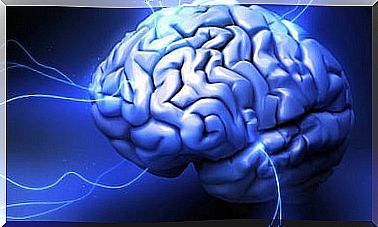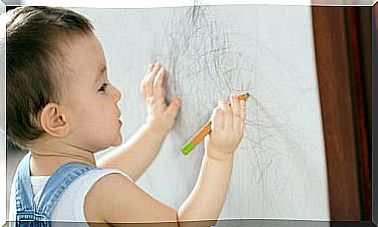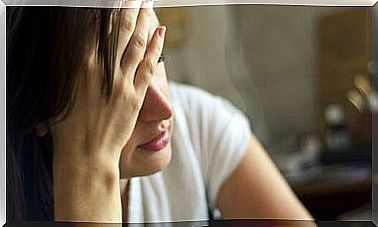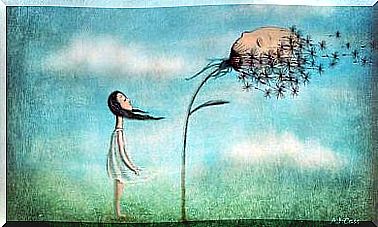7 Keys To Stop Feeling Guilty After A Mistake

When you make a mistake, a carelessness, a highly unfortunate mistake, there is no shortage of someone who tells you that of “don’t worry, you learn everything!” It is true, all experience is vital baggage. However, how do you deal with the discomfort that arises from these situations? How to stop feeling guilty after a mistake?
Guilt plays an important role in social regulation. It forces us to experience a set of unpleasant sensations to promote introspection and, later, change. That is, this emotional reality forces us to improve our behavior to safeguard social, ethical and even moral principles.
Thus, although we conceive guilt as a psychological reality of negative valence, feeling it is a necessary experience. It makes us human. It makes us empathetic people. A person with a psychopathic or narcissistic profile, for example, will not feel the weight of guilt in his harmful dealings with others. Now, there is an obvious problem with the dimension of guilt.
We often carry it too long. Negative dialogue tends to feed their power, to reinforce the suffering and the persistent worm of the memory for that incident, for that particular error. What can we do in these circumstances? We analyze it.

How to stop feeling guilty after a mistake
Guilt is that emotion that is intended to maintain social harmony by motivating repair. However, there is an interesting fact about it. On the one hand, there is the guilt that we can feel when generating concrete harm to third parties. However, there is also that destructive feeling that arises when you blame yourself for irrational things.
Something that we know well from the field of psychology is that highly demanding people often drift into these mental scenarios. Discomfort, emotional blockage, psychological exhaustion … Whoever is trapped in this prison of insidious thoughts runs the risk of leading to anxiety disorders and even depressive states.
In this way, research works such as those carried out at the University of Lancaster and the University of Kent in the United Kingdom highlight something interesting. The weight of guilt, whether it is induced experimentally for an investigation or if it is real, is experienced in the same way. The brain suffers.
Negative self-affection is experienced, there is regret and future planning. That is to say, who else and who least says that of “well next time I will not do this or I will do that”.
We already know what this mental and emotional process consists of. However, if we are going through this, how can we stop feeling guilty after a mistake? We analyze it.
1. Everything you feel is normal
Knowing that guilt is a very common experience may not be overly soothing. However, it prompts us to understand its emotional role. It is important not to experience this as something exceptional or dramatic.
Guilt feelings are permissible and necessary. If you experience them, accept that experience and understand that they have a specific purpose: to motivate you to act in a restorative way.
2. Those feelings of guilt: are they real or irrational?
To stop feeling guilty after a mistake, it is important that you reflect on what happened. Part of something concrete and objective? An example of this is having betrayed someone’s trust. In these cases it is common to feel bad about ourselves.
However, there is a very common fact: we often feel guilty about realities that do not make much sense. For example, feeling guilty for not being as productive, brilliant, or perfect as we wish. Guilty for not reaching everyone, for not solving the problems of others and always giving them the best.
Therefore, it is necessary to reflect on whether what you experience is unhealthy guilt or rational guilt. That is, you may be reinforcing negative feelings towards yourself in the face of realities that are not entirely logical. Do not devalue yourself, do not be so demanding of yourself or you will feed the shadow of an unhealthy guilt.
3. If it can be solved, do it: repair as soon as possible. If not possible, accept
Faced with a mistake, an oversight, a bad word or a disrespectful action, there is only one answer: repair. The prosocial behavior is exercised through forgiveness and the search to heal the damaged, since it relieves and improves relationships. If you still have time, act.
However, sometimes, repair is not possible and, in these cases, you can only accept what happened. Also reflect on our behavior and draw conclusions for the future.
4. Avoid thinking based on absolutes: good-bad / black-white
Another key to stop feeling guilty after a mistake is to avoid thinking in absolute terms of all or nothing. Is the world going to end for not being the perfect mother or father? Do you have an obligation to always be a model and ideal employee? Of course not.
Allow yourself to fail, accept yourself when you make a mistake, because that little notch on a particular day does not imply “being bad or fallible.” Life is full of gray tones and this is the most normal thing in the world.
5. Self-pity to stop feeling guilty after a mistake
What would the human being be without its mistakes? We probably would not have gotten to where we are without every mistake, without every mistake or disappointment generated to others. However, keep in mind: you have the full right to have your own backpack of negative experiences. Everything sculpts, everything chisels your personality and allows you to acquire new vital skills.
Treat yourself with self-compassion, be kind to yourself. Accept your vulnerability and speak lovingly to yourself.
6. Reflect on whether, perhaps, under the guilt there are other emotions
There are those who travel through the journey of life with the constant shadow of feelings of guilt. Guilt for having failed many, for not having achieved certain things. Also for not being what others thought or aspiring oneself. Now, under that rust that leaves guilt as a patina, other realities may exist.
Sadness, anger, or resentment are also reinforcers of this emotion. Therefore, it is important to break down each felt emotion and ask ourselves why it is there.
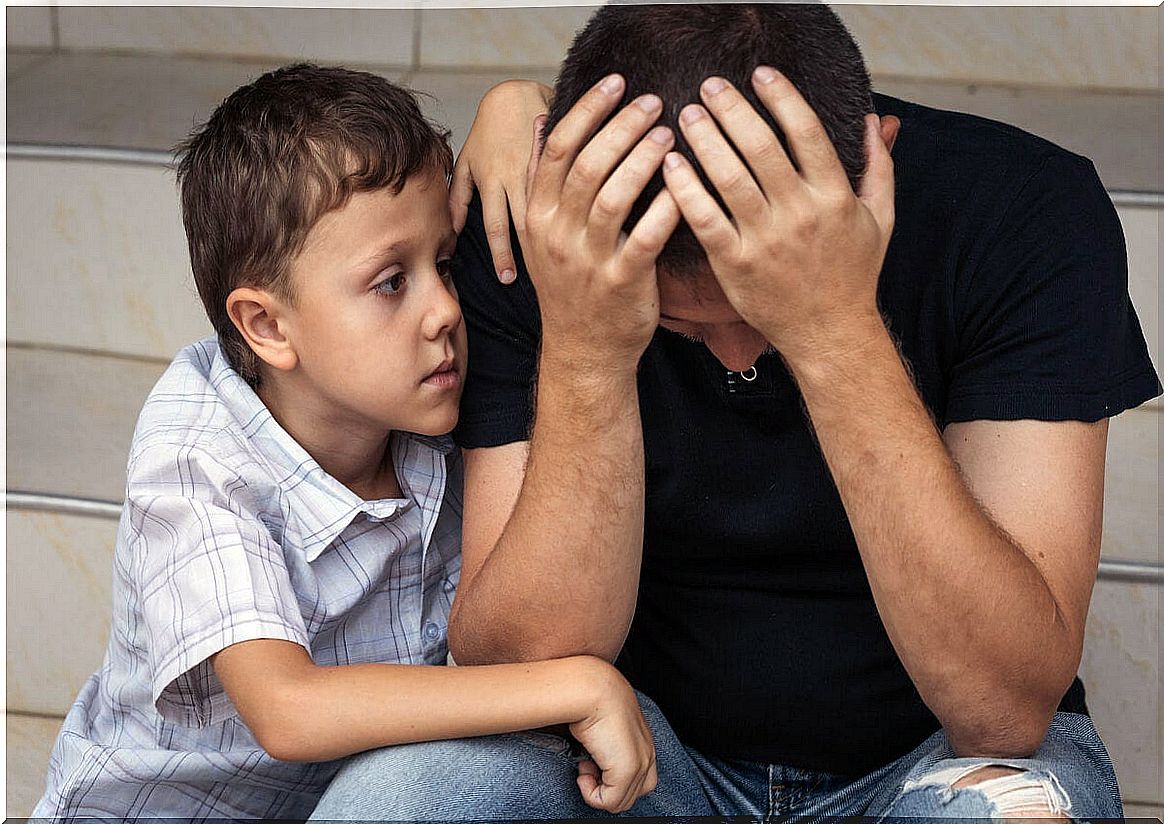
7. Value all the good things you have done to stop feeling guilty after a mistake
You are much more than every mistake made. You are your achievements, the people they love and the people who love you. If you look in the rear view of your life, you will discover how many remarkable things you have done. There are your achievements, there each thing done with kindness and affection for others.
Also, keep in mind that you would not have gotten to where you are without having made more than one mistake. So to stop feeling guilty after a specific mistake, look back and then forward. Back to remember everything achieved. Forward to advance with greater poise, temperance and intelligence.
